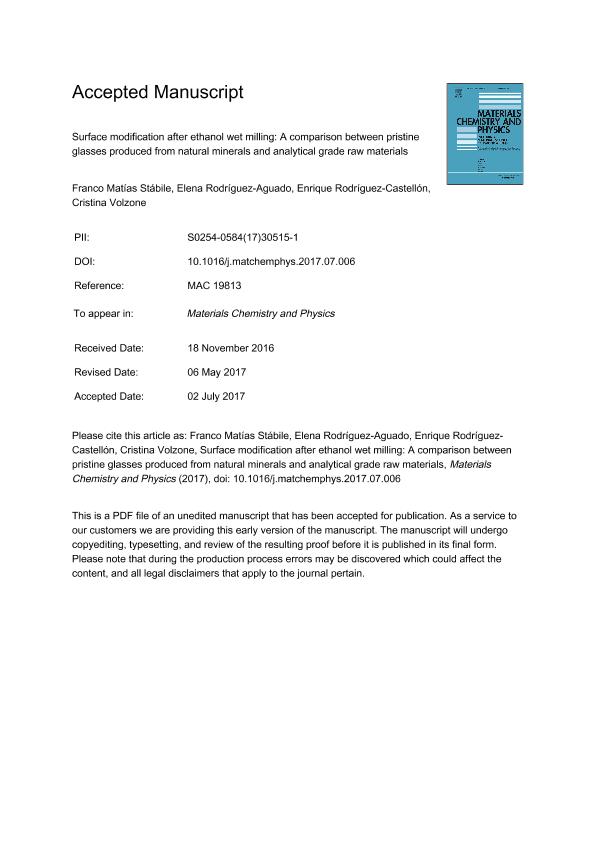Artículo
Surface modification after ethanol wet milling: A comparison between pristine glasses produced from natural minerals and analytical grade raw materials
Fecha de publicación:
09/2017
Editorial:
Elsevier Science Sa
Revista:
Materials Chemistry and Physics
ISSN:
0254-0584
Idioma:
Inglés
Tipo de recurso:
Artículo publicado
Clasificación temática:
Resumen
Four glass compositions were produced taking into account different theoretical Leucite (KAlSi2O6)/Bioglass 45S5 (45% SiO2, 24.5% Na2O, 24.5% CaO, 6% P2O5) ratios using analytical grade reagents only; and replacing some of the reagents by natural minerals, all that were found to be bioactive when they were transformed to glass ceramics. Glasses of particle size below 174 μm were wet milled using ethanol in a high energy planetary ball mill. After wet milling, samples with 25 and 30% of theoretical Leucite content using reagents grade raw materials showed a higher dissolution rate in comparison to the same glasses made from natural mineral, while no differences were found on glasses with 40 and 50% of Leucite theoretical content. Samples with higher dissolution showed a crystalline carbonate phase named Pirssonite on its surface, while on the rest of samples amorphous carbonates were present.
Palabras clave:
Bioactive Glass
,
Ftir
,
Glass Surface
,
Wet Milling
,
Xps
Archivos asociados
Licencia
Identificadores
Colecciones
Articulos(CETMIC)
Articulos de CENTRO TECNOL.DE REC.MINERALES Y CERAMICA (I)
Articulos de CENTRO TECNOL.DE REC.MINERALES Y CERAMICA (I)
Citación
Stábile, Franco Matías; Rodríguez Aguado, Elena; Rodríguez Castellón, Enrique; Volzone, Cristina; Surface modification after ethanol wet milling: A comparison between pristine glasses produced from natural minerals and analytical grade raw materials; Elsevier Science Sa; Materials Chemistry and Physics; 199; 9-2017; 379-386
Compartir
Altmétricas




